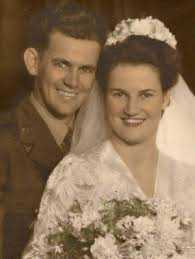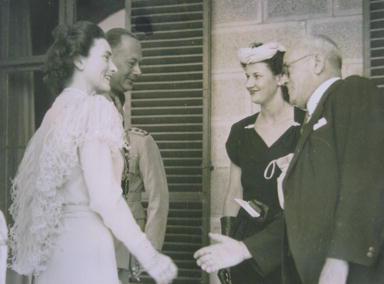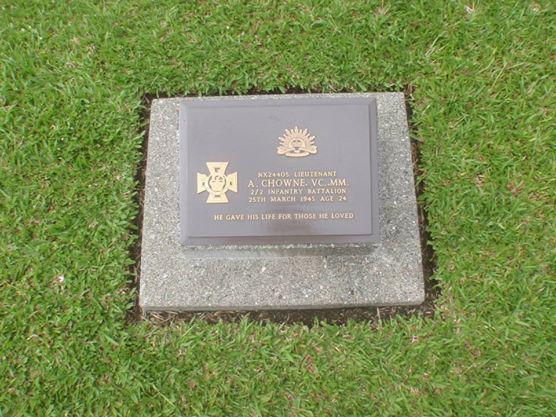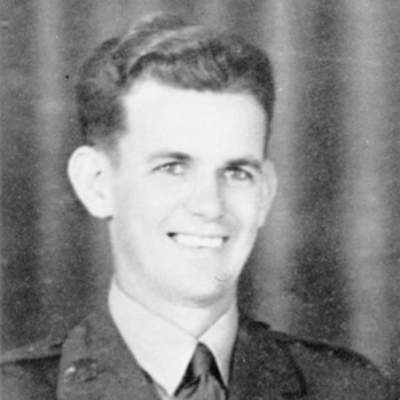LIEUTENANT ALBERT CHOWNE VC MM, 2/2ND INFANTRY BATTALION
Albert Chowne, Victoria Cross recipient, was born in Sydney on 19 July 1920. He went to Chatswood Boys Intermediate High School and later Naremburn Junior Technical School.
In 1935 he began work as a shirt-cutter at David Jones. Outside work, Chowne enjoyed sports, mainly tennis and rugby union, and was also a member of the scouts. He spent a brief period in the 36th Militia Battalion before enlisting in the AIF in late May 1940.
Chowne was assigned to the 2nd/13th Battalion as platoon and later company runner. The unit arrived in the Middle East in November 1940 and served at Tobruk for eight months the following year. During his time at Tobruk, Chowne transferred to the carrier platoon and was promoted to corporal. After Tobruk the 2nd/13th performed garrison duties in Syria where, in September, Chowne was promoted to sergeant.
He was wounded in the leg and hand at El Alamein the following month and spent three weeks in hospital. He returned to Australia with the battalion in January 1943 before moving to Papua in July.

Chowne, now the mortar platoon sergeant, was awarded the Military Medal for twice crawling close to enemy positions to direct mortar fire. Regarded as exceptionally cool by his comrades, Chowne combined fearlessness with a self-effacing manner.
He was commissioned as a lieutenant in January 1944 and he married Daphne Barton in March that year. Having completed the jungle warfare training course at Canungra, Chowne was posted to a new unit, the 2nd/2nd Battalion, in October 1944.
The 2nd/2nd was sent to New Guinea two months later. Chowne brought a reputation for bravery and leadership to his new unit.
In March 1945 he carried out a one-man patrol in daylight, at one stage entering an empty hut and rifling through the belongings of Japanese soldiers, one of whom he shot when he was discovered.
Some who knew him believed that Chowne was destined to either win the Victoria Cross or be killed in action. Sadly both happened.
On a narrow ridge near Dagua, New Guinea on 25 March 1945 he showed superb heroism when attacking a position that was holding up further movement towards Wewak. Seeing that the leading platoon was being mauled by concealed enemy machine guns, he rushed forward, knocked out two light machine guns with grenades and firing his sub machine gun from the hip, charged the position.
Though he was twice seriously wounded in the chest, the impetus of the charge carried him 50 yards forward under the most intense fire and he accounted for two more Japenese before he was eventually killed.

From left to right : Duchess of Gloucester, Duke of Gloucester, Daphne Chowne, Arthur Chowne (Albert's father)
Chowne's actions enabled the attack to continue and, according to his citation, paved the way for the 6th Division's advance on Wewak. Chowne was awarded the Victoria Cross posthumously. Daphne Chowne, his wife, received the Victoria Cross and Military Medal for Albert Chowne, at Admiralty House,1945.

Albert Chowne is buried in the Lae War Cemetery in New Guinea.
A street in Canberra was named after him as was a community hall in Willoughby, Sydney.
Source - Australian War Memorial / National Library of Australia / Kokoda Historical Photograph Collection

Albert Chowne
